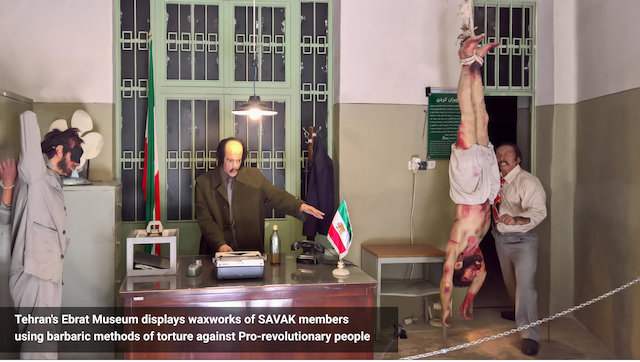By Phil Wilayto*
The first colony to free itself from European dominance was Haiti, in 1791-1804. The defeat of the mighty army of Napoleon at the hands of self-emancipated Black people sent waves of terror throughout the United States, itself a country that depended on the labor of enslaved Africans.
President Thomas Jefferson, who had famously written that “all men are created equal,” was himself a slave owner and reacted accordingly, imposing sanctions against Haiti that lasted more than 30 years. It would not be until 1862 that the U.S. government would even recognize Haiti as an independent state.
Washington reacted in a similar way to the 1959 Cuban Revolution, imposing a blockade that continues today. The Democratic People’s Republic of Korea has met a similar fate for refusing to bow down to U.S. demands.
And yet, even with these precedents, the depth and breadth of U.S. hostility against the Islamic Republic of Iran stands out for its pathological intensity.
The very first attack on a foreign government by the newly formed Central Intelligence Agency was directed against Iran in 1953, when Kermit Roosevelt, grandson of President Theodore Roosevelt, orchestrated the overthrow of the immensely popular Prime Minister Dr. Mohammad Mossadegh, whose only “crime” was to be the world’s first head of state to nationalize his own country’s oil resources. The hated Mohammad Reza Shah was returned to power and the U.S. gained control over 40 percent of Iran’s oil, previously controlled by the British.
So began 26 years of the Shah’s increasing oppression and repression of the Iranian people, assisted by the U.S. government. In fact, the CIA helped organize the dreaded SAVAK secret police force and trained its members in torture techniques, using manuals developed by the Nazis during World War II.

Finally, the Iranian people could take no more. They rose up in the last great revolution of the 20th century, reclaiming their country from the puppet Shah, upending U.S. plans for domination of the oil-rich Middle East and earning the undying enmity of Washington.
With the new revolutionary government still trying to consolidate its administrative functions and its military, Iraq’s Saddam Hussein thought there was an opportunity to defeat what he saw as a threat to his own rule and regional influence. Therefore, he launched what would become an eight-year imposed war in which both Iran and Iraq lost some 300,000 people. Feeding the carnage, the U.S. government supplied Iraq with weapons and intelligence.
On July 3, 1988, barely seven weeks before the war’s end, Iran Air Flight 655—a civilian passenger plane—was shot down by the USS Vincennes while flying over Iranian territorial waters in the Persian Gulf. All 290 passengers - children, women and men - were killed, along with all crew members.
Then-President Ronald Reagan claimed the shooting was an accident, but Iran has yet to receive an apology.
Beginning in 2003, the U.S. began accusing Iran of having a program to develop nuclear weapons. The U.S. possesses more than 7,000 nuclear bombs and is the only country ever to have used one, but it forbids other countries from developing them. For its part, Iran denies the charge, which originally was raised by the terrorist organization Mojahedin-e Khalq.
Iran has agreed to the most extensive regimen of international inspections ever carried out against any country, and there has never been any proof to back up Washington’s charges. And yet the charges keep coming.
The list of diplomatic, economic and military aggressions against Iran is seemingly endless: the waves of cyberattacks against Iran’s nuclear facilities ordered by President Barack Obama, falsely claiming that Iran’s principled opposition to Zionism is the same as hatred of the Jewish people, endless demonization of Iran’s leaders, surrounding the country with hostile military bases, and carrying out endless naval maneuvers in the Persian Gulf.
Today the strange and dangerous regime of Donald J. Trump is threatening to walk away from the Joint Comprehensive Plan of Action, more commonly known in the West as the Iran Nuclear Deal, while issuing new sanctions against figures in the Islamic Republic.
These attacks on Iran and its Revolution have been carried out under a succession of U.S. presidents—Republican and Democrat, supposedly liberal and conservative. Despite some changes in tone, the objective goal has been consistent: to undermine Iran’s government and remove this indomitable obstacle to U.S. hegemony in the region.
Those attempts have failed in the past, they are failing now and they will fail in the future. Whatever differences may exist among Iranians in terms of domestic policies, they will never again allow a foreign power to dominate their country.
That determination, and the steadfastness of Iran’s leaders, will prove more powerful than any military force, particularly when reinforced by the solidarity of the peoples of the world.
Phil Wilayto is editor of The Virginia Defender quarterly newspaper and author of “In Defense of Iran: Notes from a U.S. peace delegation’s journey through the Islamic Republic.” He can be reached at DefendersFJE@hotmail.com.
The views, opinions and positions expressed on Op-Ed are those of the author(s) and do not necessarily reflect the views, opinions or positions of Khamenei.ir.








Comment